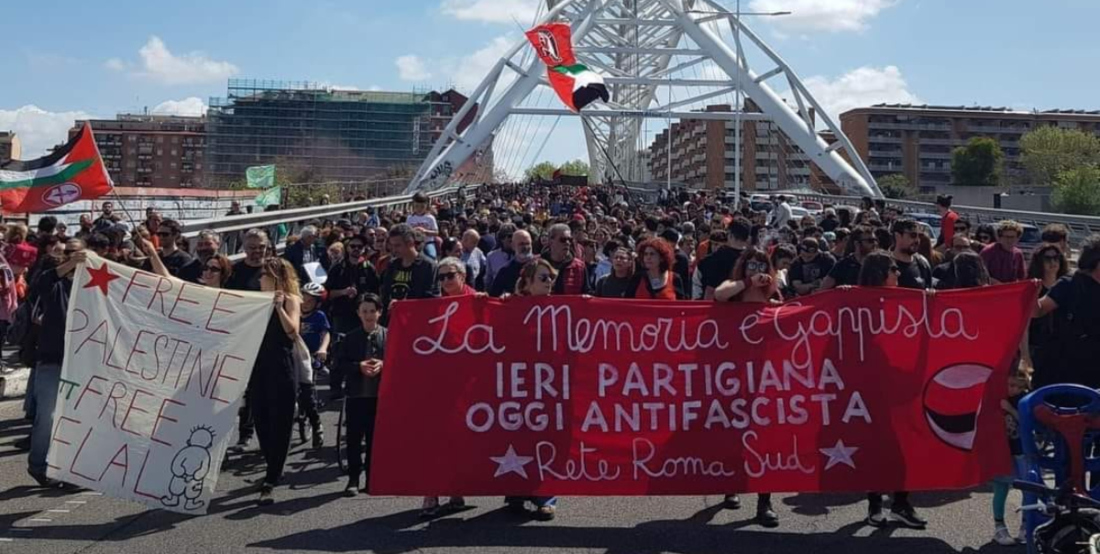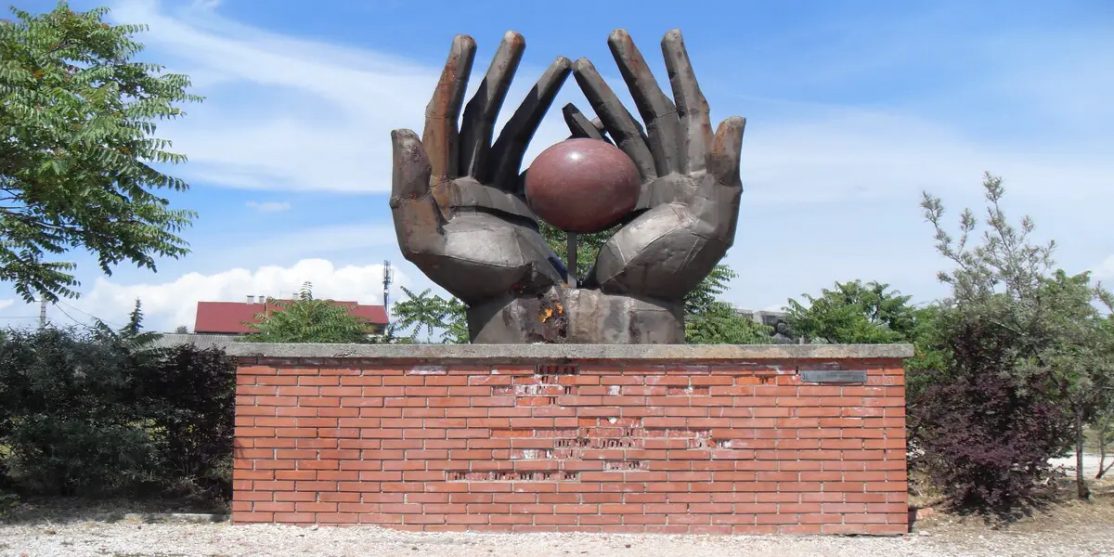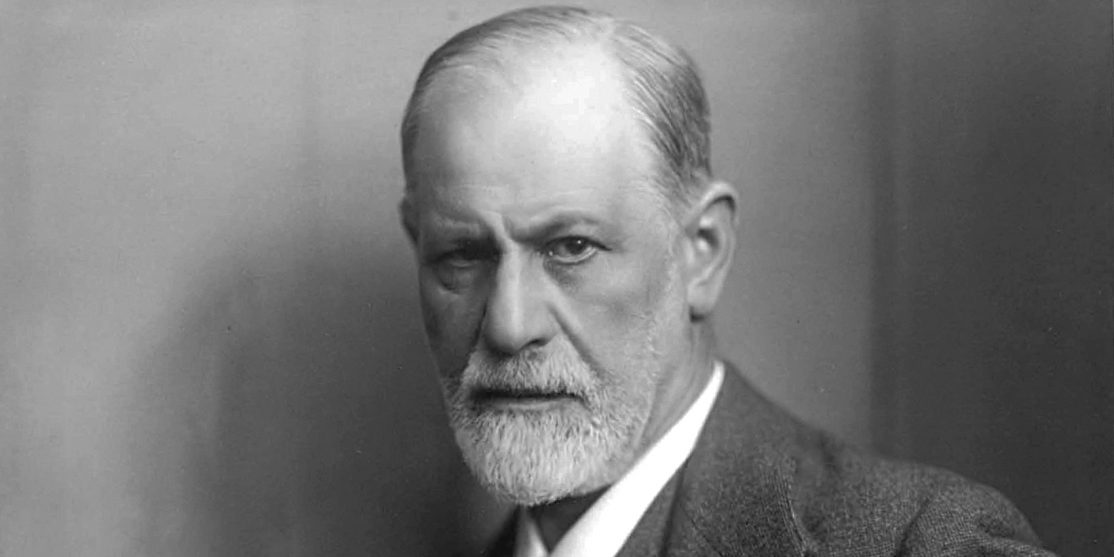EUROPA
The Memorandum of disillusion

Memorandum, negotiations and austerity: interview with Tasos Koronakis, Syriza’s general secretary until last August. A short journey through unfulfilled hope for change and perspectives of radical transformations to rebuild.
G: Syriza has gone to the government saying that austerity measures would have been stopped. But it has not been able to do it. Do you think it was because of tactical mistakes in negotiations or of strategical mistakes in the perspective that lead to them?
T: I think that what Syriza said is: “we’ll try to negotiate inside the Eurozone. But in the end we’ll choose what is better for our people, rather than what is better for the creditors”. This “better” was not specified and this was a first mistake. But above all there was not a real plan B that Syriza could have pulled through if the lenders would have said no. In the previous period, Syriza only believed that democracy in Europe was more important than what IMF or Germany wanted. But this is not the Eurozone reality today. After the negotiations of the Greek government, this is clear to everybody. So, there is a problem of strategies, and tactical mistakes at the same time, since no one forced Syriza to finally sign and to guarantee the continuity of austerity. No one. When there is no plan, you shouldn’t do the opposite of what you said you would have done in the previous years. So this is why we had a split in the party, and why… now I’m talking to you.
G: What do you think the worst effect of this Memorandum is?
T: The referendum is the biggest historical happening in this very strange period we lived over the last years. Because Syriza was a party of 4% and we simply fought with the workers and the people of Greece. It was the party that had a different idea in how to face austerity. When it went to the government, in the period from January until the Memorandum, even if Syriza didn’t do everything it could to make people express themselves and democracy grow (because the one of negotiation was a hard period, and I can understand it…) there was a wave of politicization of the Greek people.

The referendum showed that a lot of people had taken the risk. I don’t want to say that they voted NO to go out of Europe, but they voted NO against everything, against Eurozone leaders, against anyone who was in power. And voting no they said: “We take the risk”. Because they couldn’t know what was going to happened, and this shows us that people need something different. This is why they took such a big risk for their lives, because they knew that they could find themselves facing a crash and that, after that, everything would have been very difficult for them. But 60% of the people voted NO. We often say that Greek society overtoook Syriza in this struggle. There was a lot to be done with society in this struggle, but Syriza acted as a typical government and didn’t stand by the side of such a brave people.
G: You broke with Syriza when Tsipras called new elections, not when he signed the Memorandum…
T: Yes, and I can explain that. Since I was secretary of the central committee I know all the difficulties of the negotiations well. But I thought that what I had to do was to go to the congress party in order to discuss collectively what to do after this failure, this defeat. So, maybe I had to leave my place before, or maybe I would have never taken that role. But those days what I thought I had to do was to go the congress of the party and discuss all the experience in a democratic way. This is what I tried to do in those days, when we were under great pressures…
G: … yes, but my question was not just on your personal experience, even if of course it is very interesting. I asked you this question, because you said that nobody forced Syriza to sign the Memorandum…
T: … not to sign, but to apply. Because until the signature there was a lot of pressure. They said: “You have to sign or your banks shall collapse”. And people, also poor people, would have lost their money. So it was a very difficult situation. And we were in a very difficult situation because we hadn’t prepared for this in advance. But when you are in this situation there isn’t much you can do. You have taken more, and more time and economy and society are exhausted. You have gained 60% at the referendum. All your weapons of negotiation are finished and you are at your last step. And they say: “you either sign or you collapse and we’ll do everything possible to fuck you”. So, at this moment there weren’t many options. I mean: it is your responsibility, because weren’t prepared. But even if there aren’t many options, even if you sign, because you have to, you don’t have to guarantee and implement it. Syriza was the party that promised to get out of austerity, and it is the party that is implementing austerity.

G: Among the things Syriza said in the propaganda period, what do you think it has succedeed in doing?
T: There are some things. In the first months there were some measures of solidarity with the very poor, others regarding rights in prisons and a new law for prisoners. There have been measures regarding the way one has to pay debts to the State, allowing to pay only some parts. But it is not enough. In the first months, the party should have signed more measures to gain a better relationship with workers and poor people. For instance, collective agreements. We had this discussion three times in the party, but we didn’t put the measure through. There was this way of thinking in the party: we can’t fight on too many fronts at once. And since it was negotiation time, we decided to put the most of our energies into that, and postpone the rest. And this was a big mistake. Because you waste time, because negotiations keep coming back. While the government thought it was gaining time, it was wasting it. With that time we could have done much more. During the first 6 months there are five or six things that were in the program, and people understood that for Syriza it was the first time in government and that everyone was against them. People understood that they had to wait. But this was a total failure for the government because maybe that was the time in which people were waiting for something strong from the government, strong change. This could have built a different link with society and could have given more power to the government. In reality, the government lost power because didn’t do enough against what the Eurozone told it to. But in the first months there was a different feeling: that we had a new government that would fight for people, that there were some people trying to do everything they could. Now there is no longer this hope. The elections of January and of summer were very different. In the second ones the people voted for Syriza, 600 thousands less, with the feeling “we lost, what do we have to do?”. But in January they voted with the perspective of big changes, with the hope that something new was coming, that after 20 years the government would be with them. Because in the previous period, even if Syriza was a small party, it had always been on the people’s side. Even in the worst situations, when police was against people, Syriza was there. December 2008 was a difficult period for normal parties, but Syriza was there. In Syntagma square despite the police violence, Syriza was there. The big changes came from 2012 and 2015. In 2012 Syriza was the second party in the elections and started it’s way towards the government. Its model of organization and leadership started to change, giving more and more power to Tsipras and becoming more and more focused on taking over, doing everything possible for this. This is why in this period you see a lot of splits, fights, ruptures. And this is why finally in 2015 Syriza said “nothing happened, you just have to vote for us and respect democracy and we will end austerity”. As if it would have been possible without a struggle. I described the shift from the movement oriented party to the government oriented party and the signing the Memorandum. From 2012 to 2015 and even more in the 6 months of government there was a big transformation of Syriza into a normal party. What it says now, in reality, is what the previous government used to say: “We’ll do better than the others”. It doesn’t say “we work for the people” anymore, but “our work is better than what the right wing parties do”. This is the only difference, there is no really good perspective. And what they said after signing is more or less the same that the governments previous to the memorandum said: “there are difficult measures, we have to take them and after things will be better and growth will come, and with growth the end of austerity and social justice shall come”. There are no differences with the previous government. This is very dangerous. Because there is a lot of disappointment among the people that fought the memorandum over the last 5 years and we don’t know what can happen over the next years. After a great wave of politicization, more and more people are saying “you are all the same”. The crisis of representation is growing again. Syriza was the answer to this crisis, because it didn’t want to represent the movement, but to bring the decisions of the movement inside the Parliament. After the shift from a movement oriented party to a government oriented party this kind of legacy is lost, and the decisions are taken only in the Prime Minister’s circle. In this framework, anti-politics grows and this can be a good ground for fascism and extreme right to take power.
G: Do you think is it still possible to find an answer from the left to this representation crisis here in Greece, after the signature of the memorandum?
T: There’s nothing else we can do. We must find an answer. This is the major question for us now. If you look inside Syriza and you look for the reasons of this transformation, you will see that even if it was movement oriented, even if its members were part of the movement, the party structure was wrong. So, now the point is this: in which way we organize our fight. For sure the political power can not grow only from the political level. We have to produce power from the social level and we have to find a new way to organize this struggle, linking movements and left in the fight for the power. We have to reconsider all the procedures of how we produce power and of where we stand in the way to power. And this way doesn’t only go through Parliament. As left, we have to fight for the Parliament but at the same time we have deeper challenges to face at the social level, in order to change the way in which people think and organize their life. And this is why you cannot fight against the Eurozone and the strong powers only at the political level, without producing power from society. This is a new issue and we have to find new answers.

G: In these days in Greece there have been new demonstrations against austerity. There was a general strike last week…
T: … a big general strike…
G: … and now there are the farmers, the lawyers, the doctors taking the streets. I think that these new demos are over-represented in Italy compared to the ones against Nea Demokratia…
T: …The same thing happens here. The TVs are showing these mobilizations all day. On the other hand, the government is trying to say that all these people are from the right and far right. And this is not true. Even if the TVs and the newspapers over show these demos, even if we know that there are parts of the Greek capital that want to overthrow this government, the people that are taking the streets are not only pushed by this. They are also people from the left, that were in the streets during these years. Because there is also a big experience in struggling. That is why the movement from the streets was so great. People are used to fight for their rights, and they are doing it even against the government that they were expecting to solve their problems. What I want to say is that these protests are complex, because they involve both people from the left, and from he right.
G: Which kind of social classes are protesting? I mean, are the farmers peasants or landowners? Are the lawyers important law firms or young precarious lawyers?
T: Both. They are together. Because these measures are horizontal. Young and precarious lawyers that take very low wages cannot pay new taxes. At the same time, these measures take money also from rich lawyers. Moreover, rich people don’t trust Syriza, even if they signed, even if it guaranteed to pass the measures, it is not their party, so they want to overthrow it. This is why this period is so strange: we have struggles from the left and from the right facing the same issues at once. For example, on the pension system there was a struggle from poor and left people, together with rich and right wing ones. Over refugees it is the same: there are people against the government from extra right positions, because it lets them pass; and also opposition from the left, that says that the government will finally implement the Euro-NATO plan, closing the borders and allowing push backs. So Syriza has both left and right opposition to its policies. So, it’s a very strange situation and now also other parts of the left know that if there is not a leftist way for the people to express themselves politically, the right will grow its hegemony. If this government falls from the right side, it will not be good for us. What we want is the end of austerity, not the end of this government’s austerity. But at the same time we can’t stand aside of this government, because they are acting like the social democrats did in the previous years. And, finally they signed and implemented memorandum and austerity against the people. So, even if there are some good things – as the rights for homosexual couples or the universal access to healthcare, that they will approve soon – these are not the main projects that this government had. It is trying to play a humanitarian role, but when you implement politics that produce poverty, you cannot say “We are with the poor” after that. Because your politics make them poor.

G: The last question is about the left in Europe. I think it is too easy to speak about the failure of Syriza. With the signature of the Memorandum all the European left looses, both the institutional one, and the movement one. Everything we have done in the last years was not enough, because even if there were solidarity demonstrations with Greece, they were not sufficient to really push the other governments to take a different stance on the negotiations. We can say that the Syriza option was an alternative discourse to the austerity at a European level. After its defeat, what I fear is that the nationalist discourse will become the opposition against the neoliberal measures. In this framework, do you think there is still space for the left in Europe and on which ground could a left discourse grow?
T: We have to do it. We cannot wait for somebody else to create an alternative to this situation. The first thing is that it is an interesting period. We have to see what happened in Portugal and Spain. And Spain is a big country, it is not little like Greece. What I hope is that the Spanish and Portuguese left will understand our mistakes, and go beyond them. I’m not sure that governement with the social democrats is the answer. I don’t have hope or trust in them. My fear is a new coming back of the social democrats with the help of the left, as an alternative that at the end it is not a real alternative. In any case, we have to get out of the illusion about Eurozone. Eurozone is a mechanism of power inside the single countries. The previous period proved that the Eurozone leaders don’t mind a democratic election in a country. Eurozone is a mechanism of egemony of Germany and Germany is triyng to make it a mechanism outside the national balances of power. National balances of power don’t affect the Eurozone politics. I think that we have to build a plan that finally aims at the dissolution of the Eurozone mechanism and to build a new way to cooperate. The first thing we said is that we want to move out of austerity, but if austerity and Eurozone are the same thing, we have to fight to exit the Eurozone. But not in a national way. We must have a European plan of dissolution the Eurozone and a common plan to rebuild a new form of cooperation. Because the heavy risk is to be one against the other in the same game. Moreover we need peripherical unions, in order to have more power in the national and international balances of power. Because outside Eurozone there is no perfect place, there is no place without capitalism. Even outside there are imperialism, and the USA, and war. So, I think that we have to build a path that has democracy as it’s core. Democracy and justice against austerity. Because austerity comes together with undemocratic paths. No one can take more and more austerity measures without authoritarian politics. So we have to construct a European path, of the European people and not of the European leaders and States. And we have to prepare to produce power from the society. And together with the movements to make an hegemonical alternative against the neoliberal one. This is not something simple, but we have to find an alternative. In the previous period Syriza made a struggle for the future of all the European countries, without a strong cooperation with the parties and the movements of the left. And this was again a mistake from our side. In Greece we had a lot of movements, but we didn’t have a form of cooperation of the movements that could have made pressure on the government to not sign or to not implement the Memorandum. We have to build alternative institutions from our side, from the movement and the left, in order to cooperate also on a European level, to find way to organize with more democracy on the inside and reach an upper level of cooperation between us. In the previous years we followed part of the path, we had some good examples, but now this is even more urgent. The cooperation of the left and the people movement in Europe in order to build an antagonistic and hegemonic project is necessary. Not to get out of the State and away from its problems, saying “we’ll find a European solution”. I disagree with this, with Varoufakis’ style. As if from above we could re-democratize Europe. I am open to Varoufakis’ proposal, but at the moment I don’t think this is the way. We have to start from grassroots groups, make our cooperation closer and create a common plan for the poor people in Europe. This is the most difficult, but it is our T.I.N.A.. We don’t have any alternatives.




